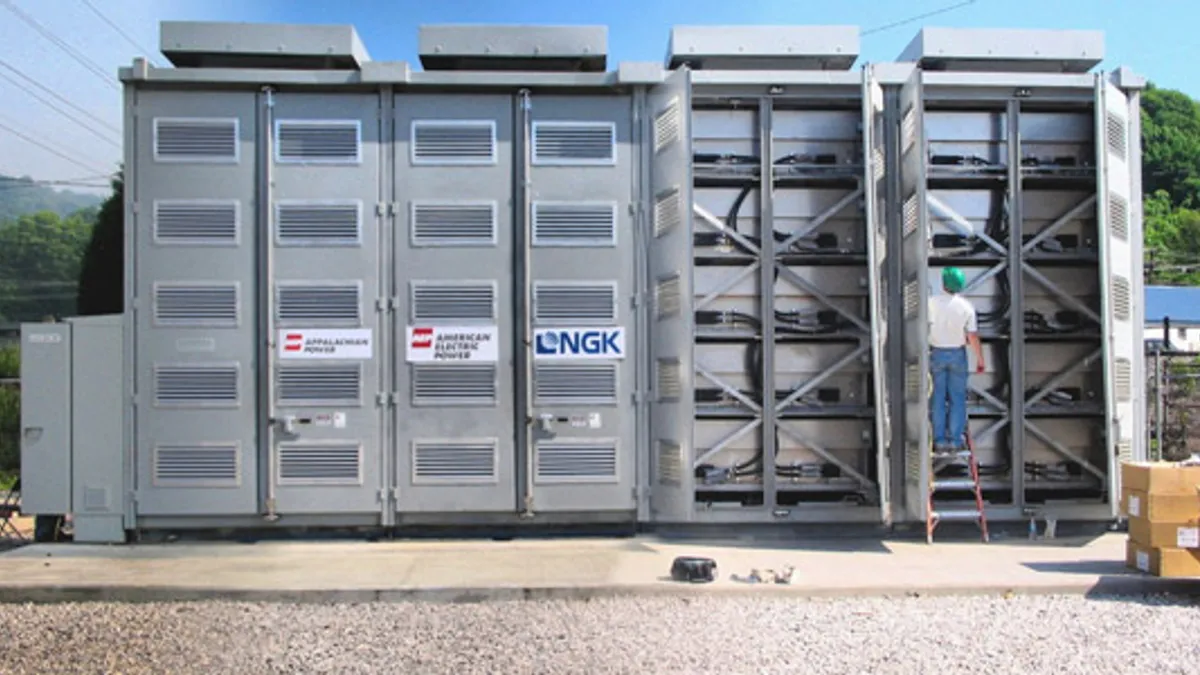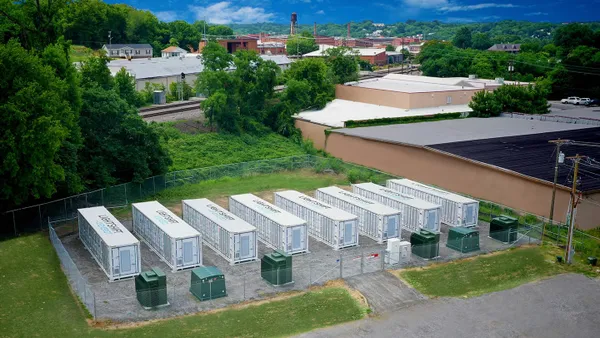Dive Brief:
-
Two recent announcements underscore the growing presence of utilities in the energy storage market.
-
Pacific Gas & Electric on Tuesday said it has signed a contract with EDF Renewable Energy to develop a 40 MWh portfolio of energy storage projects.
-
And on Wednesday, Exelon and Albemarle Corp., a chemical company that makes lithium products, announced they were founding investors in Volta Energy Technologies, a startup that tests and evaluates energy storage technologies.
Dive Insight:
Energy storage is increasingly being included in utilities’ chief planning tool: the integrated resource plans (IRP). That inclusion is a sign that utilities are beginning to see the value and benefits that energy storage brings.
“Utilities are becoming more active players in the energy storage market,” Brett Simon, energy storage analyst at GTM Research, told Utility Dive in an email.
A significant number of utilities now include energy storage in their IRPs, including Arizona Public Service, Tucson Electric Power, Florida Power and Light and Puget Sound Energy.
PG&E’s contract with EDF RE does not come as a surprise, Simon said. Like California’s other two investor owned utilities, PG&E is required to procure energy storage under AB 2514 that was passed in 2010.
Some foreign utilities have also shown an increased interest in the storage market over the last 12 to 24 months, Simon says, citing ENGIE and Enel.
ENGIE North America and Holyoke Gas & Electric in October said they plan to build a 3 MW, 6 MWh storage project at a Massachusetts solar farm that used to house a coal plant. Also in October, Enel told Bloomberg that the company is looking for energy storage acquisitions.
“This is a trend I’d expect to continue as storage economics continue to improve and utilities begin to explore new technologies to ensure effective system operations in the face of a changing grid,” Simon said
In the PG&E deal, EDF RE will build, own and operate a portfolio for PG&E that will include behind-the-meter battery storage projects for commercial and industrial customers in PG&E’s service territory.
The aim of the projects is to help C&I customers to lower their electric bills by reducing their demand charges and maximizing consumption during off-peak hours, as well as bringing in revenue by using storage to provide services to California’s wholesale power market.
Energy storage is also taking hold among utilities in states that do not have state-mandated storage policies such as California’s. In October, American Electric Power and Greensmith Energy struck a deal to install a 4 MW, 4 MWh storage system at two hydroelectric plants in Virginia.
In North Carolina, Duke Energy is spending $30 million to install two battery storage systems, a 9 MW system near Asheville and a 4 MW system at a solar plant in Madison County.
Utilities have also been looking at energy storage as an investment.
“It's not common, but by no means is it unusual,” Simon said. “We've seen a trend of utilities and energy companies moving into the storage market with the past two years.”
Most recently Exelon said it is teaming up with Albemarle as founding investors in Volta Energy Technologies.
Volta’s mission is to find and evaluate new energy storage technologies and to help investors and end-users make sense of the research landscape. Among the technologies Volta is looking at include advanced lithium ion, sodium ion, vanadium flow, sulfur batteries, solids state batteries and possibly lithium metal batteries. Volta has an agreement that allows it to use test facilities at the Argonne National Laboratory.
In October 2016, Exelon entered a five-year cooperative research and development agreement with Argonne to identify technologies that advance clean energy and contribute to the development of a next-generation energy grid.
Earlier acquisitions include Total’s acquisition of Saft and Enel’s acquisition of Demand Energy.
“A player like Exelon moving into the storage market with Volta is another signal that large, traditional energy players see bankable opportunities in the storage market,” Simon said.













